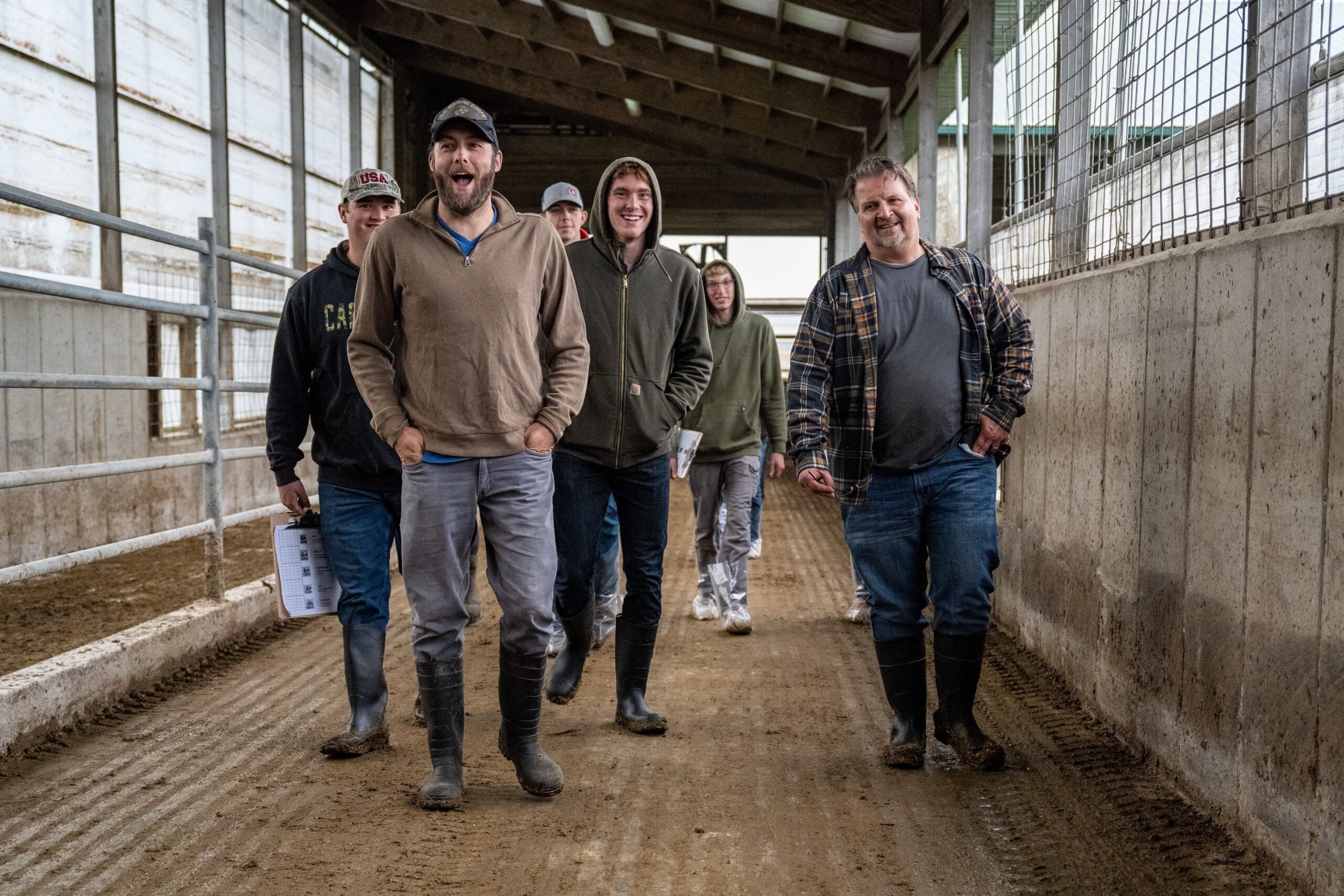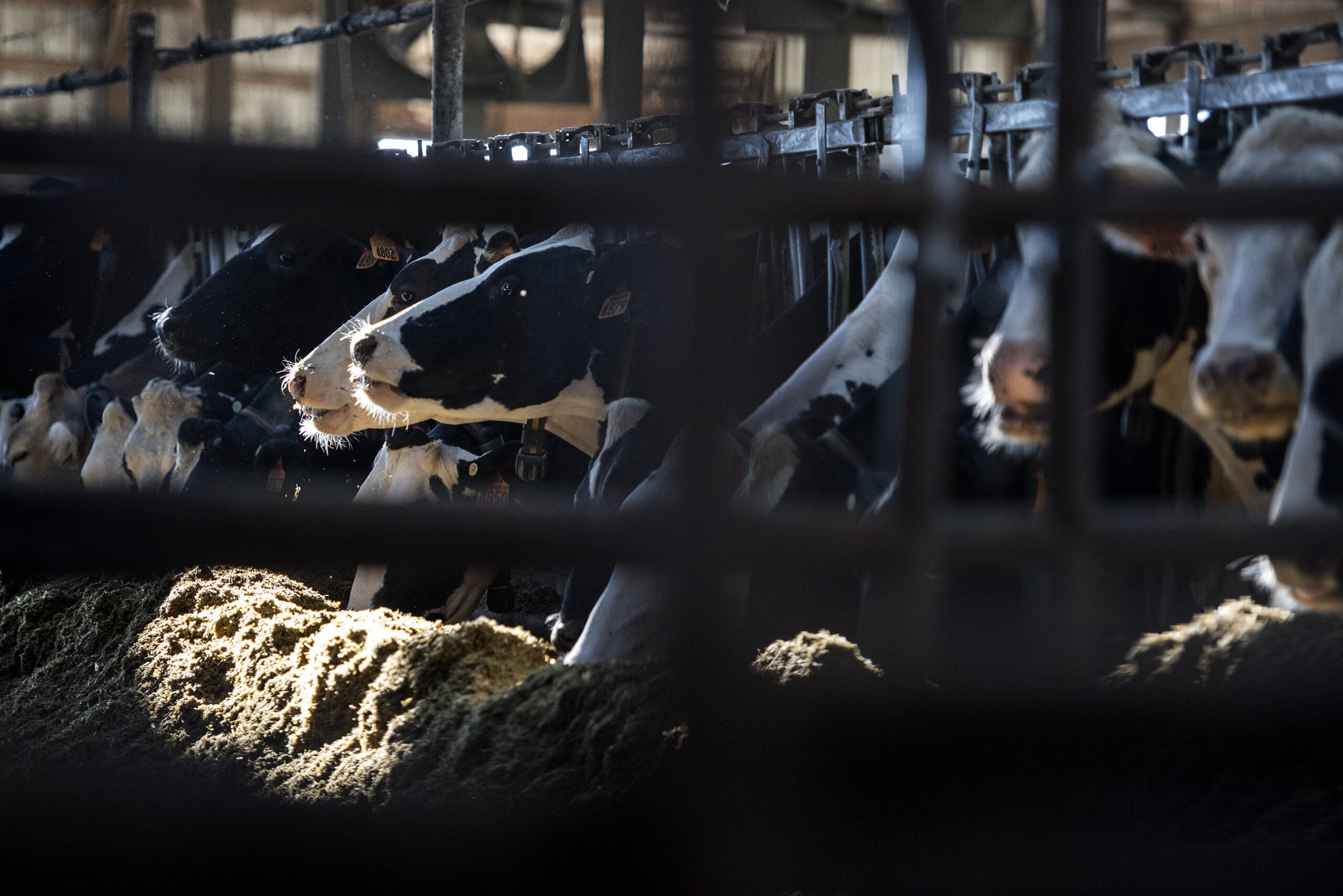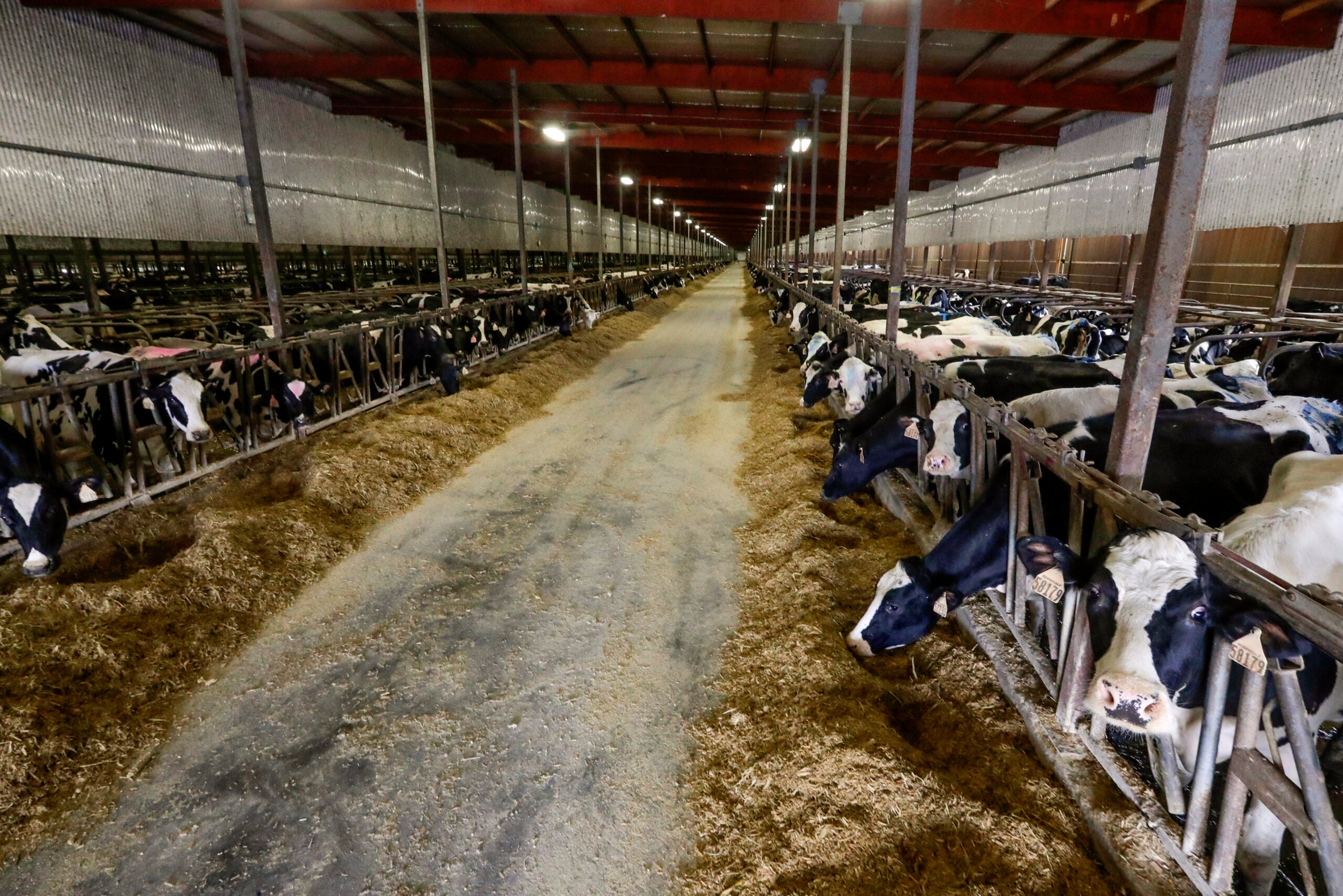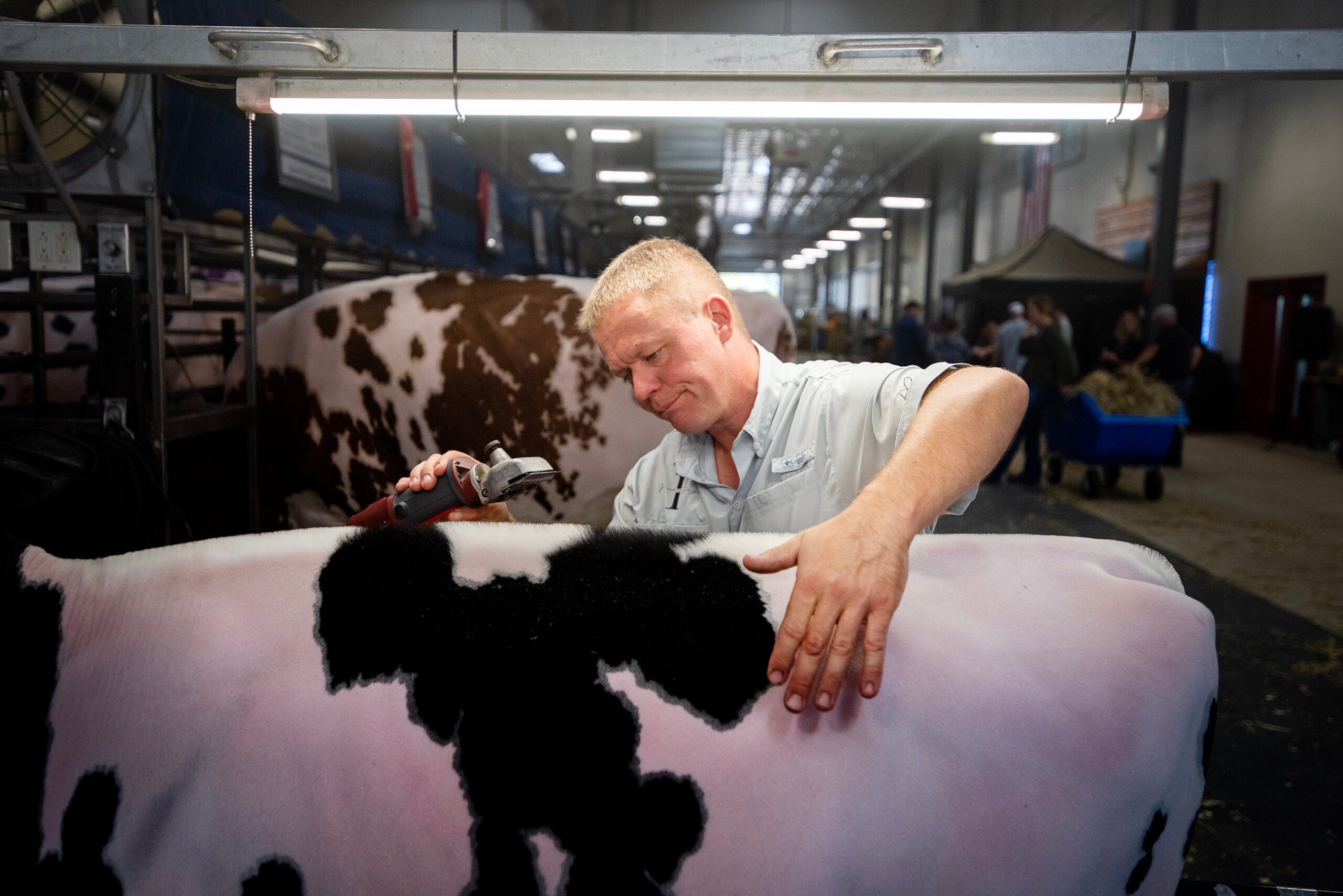Since high school, Taylor Kolls wanted to be a dairy farmer. But that dream was put on hold for about 15 years as life happened.
Kolls, 34, joined the Marines after high school. Since then, he has spent time working various white-collar jobs.
“Getting into farming was so expensive that I kind of just put it to the wayside and tried to figure out a different career path,” Kolls said. “Finally, I said, ‘I’m going after what I have a passion for.’”
News with a little more humanity
WPR’s “Wisconsin Today” newsletter keeps you connected to the state you love without feeling overwhelmed. No paywall. No agenda. No corporate filter.
Kolls started working every other weekend at a farm in Pierce County. It was there he learned about the Farm and Industry Short Course at the University of Wisconsin-River Falls.
The 16-week program started in October.
“I’m older, I have two children and I’m making a career change, so for me, a typical four-year, or two-year type program wasn’t going to be the best,” Kolls said. “Something short like this — 16 weeks — really played a huge, huge benefit for myself and my family.”
Kolls is one of nine students enrolled in the program.
This is the first year the short course is being held at UW-River Falls. But the program is nothing new.
The short course is actually the UW system’s oldest training program in the agricultural sector, originating in 1886 at UW-Madison.
In 2022, UW-Madison announced it was ending the 16-week on-campus certificate program, with plans to transition to a mix of online and in-person training.
University officials said enrollment had been declining over the last decade, and the smaller classes weren’t enough to support operation.
UW-River Falls Dairy Science Professor Steve Kelm said when UW-Madison announced the program would discontinue the in-person courses, there was outcry from the dairy industry.
A bipartisan group of state lawmakers rallied around a bill to provide funding for the program and the class was moved to UW-River Falls.
“Dozens of farm owners were short course graduates,” Kelm said. “Those individuals are now on farming boards, community boards, school boards — and they were really disappointed about the choice to shut it down.”
Kelm said dairy farmers wanted to make sure students got in-person experience, but also wanted to ensure students receive college credits that could be applied to a two or four-year degree if they wanted to pursue one later.
The short course is worth eight credits. It includes classes instruction on how to give a cow an IV, agriculture business, intro to accounting, reproductive physiology and milk quality.
Most students also work part-time at a nearby farm or their own family farm, Kelm said.
If the program proves to be a success, Mike Orth, dean of the College of Agriculture, Food and Environmental Sciences at UW-River Falls, said the model could be expanded to other agricultural disciplines.
Short Course student Macy Johnson didn’t grow up on a dairy farm, but she has participated in 4-H with her cousins since she was about 5 years old.
Through 4-H, Johnson, 19, fell in love with cows. She started feeding them and, about three years ago, showing cows for Marshland Farms in Cushing.
“I like this class because I get hands-on experience, but it’s close enough to home, so I can still go back and work on the farm,” Johnson said.
Wisconsin Public Radio, © Copyright 2026, Board of Regents of the University of Wisconsin System and Wisconsin Educational Communications Board.







